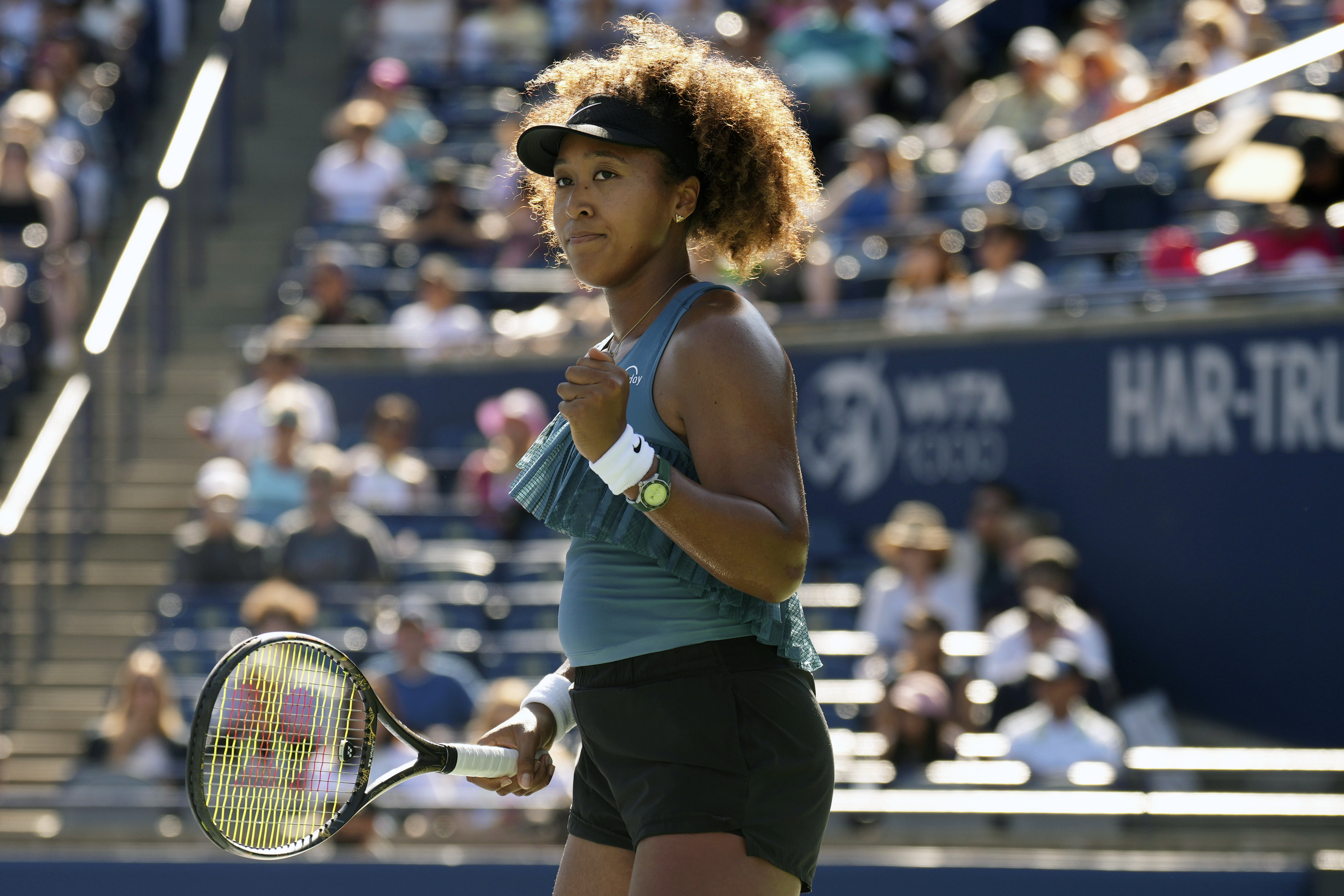NEW YORK (AP) — Naomi Osaka is at the U.S. Open to compete for the first time in two years, and she said Saturday that returning to the site of two of her four Grand Slam titles gives her a boost — but not because she focuses on her past success there.
No, Osaka explained, it’s more about hearkening further back, to the days when she was a child in New York and would come as a fan to watch “all the famous players that you could name,” such as Rafael Nadal, Serena and Venus Williams, and Maria Sharapova.
“I do think coming to this specific tournament helps me out. But also, whenever I step foot here, I don’t really think about the two tournaments I won,” said the 26-year-old Osaka, who was born in Japan to a Japanese mother and Haitian father; the family moved to New York when she was 3. “I just think about how I felt when I was a kid, because I did grow up coming here, and I have such vivid memories of watching my favorite players. It’s more of a childhood nostalgia that I really enjoy.”
She won the U.S. Open in 2018 and 2020, the Australian Open in 2019 and 2021, and used to be ranked No. 1. But after a combination of time off — first for mental health breaks, then because she gave birth — and so-so results this season — she is 18-15 in 2024 — Osaka is currently 85th. She will face No. 10 seed Jelena Ostapenko, the 2017 French Open champion, on Tuesday at Flushing Meadows.
During last year’s U.S. Open, Osaka paid a visit, watching some tennis and appearing with Michael Phelps at a discussion about mental health.
After getting eliminated in qualifying at the hard-court Cincinnati Open this month, Osaka posted on social media about dealing with defeats and not quite understanding why she hasn’t been playing the way she used to.
“My biggest issue currently isn’t losses, though; my biggest issue is that I don’t feel like I’m in my body. It’s a strange feeling, missing balls I shouldn’t miss, hitting balls softer than I remember I used to. I try and tell myself, ‘It’s fine, you’re doing great, just get through this one and keeping pushing.’ Mentally it’s really draining, though,” she wrote. “Internally I hear myself screaming, ‘What … is happening?!?!’”
She added that “the only feeling I could liken how I feel right now to is being postpartum” and “I don’t understand why everything has to feel almost brand new again.”
One issue was that she was having trouble with all of the surface-switching of late, from the red clay at the French Open to the grass at Wimbledon back to the clay at the Paris Olympics and now to hard courts.
Another was a lack of self-belief, something that happened in part because of early exits: in the second round of the French Open against eventual champion Iga Swiatek, even after coming within a point of winning; in the second round of Wimbledon against Emma Navarro; in the first round of the Summer Games against three-time major champion Angelique Kerber.
“I feel like, for me, throughout the year I have had really hard matches, and it kind of dipped my confidence a little,” Osaka said. “I wouldn’t say that I played bad tennis. I just would say that I played really good players.”
The sort of revelatory sharing on social media she does every so often helps provide clarity of thought.
“It’s like speaking your words into the universe and letting them go,” Osaka said. “After you see it, you’re kind of just free from the thoughts that muddle your mind.”
Now, she said Saturday, she feels “way better now” and has been practicing “at a really high level.”
“I hope,” Osaka said, “that I’m able to play matches at a really high level, too.”


